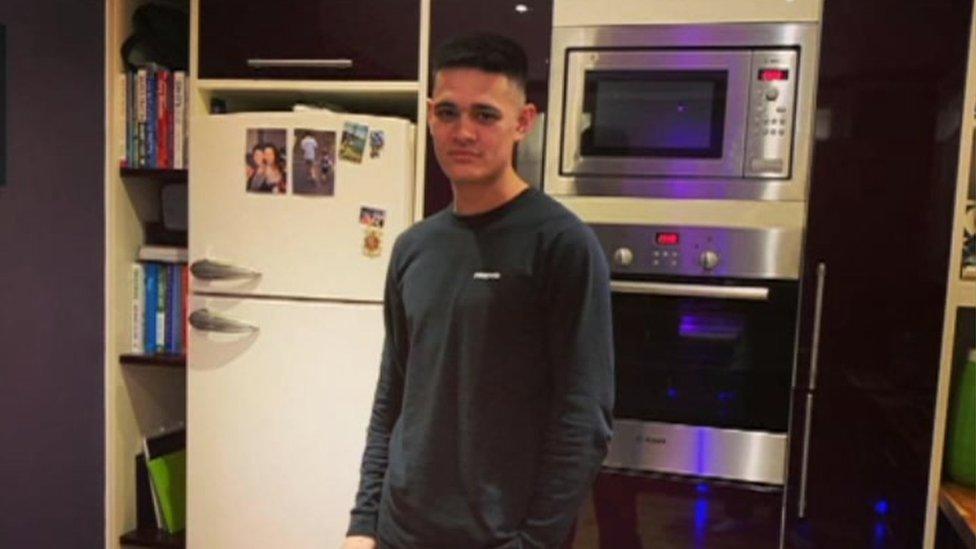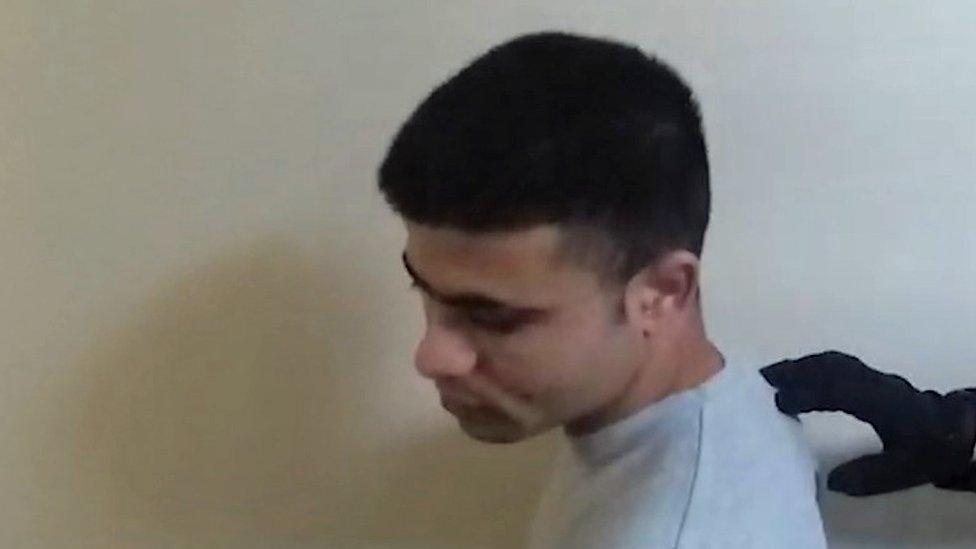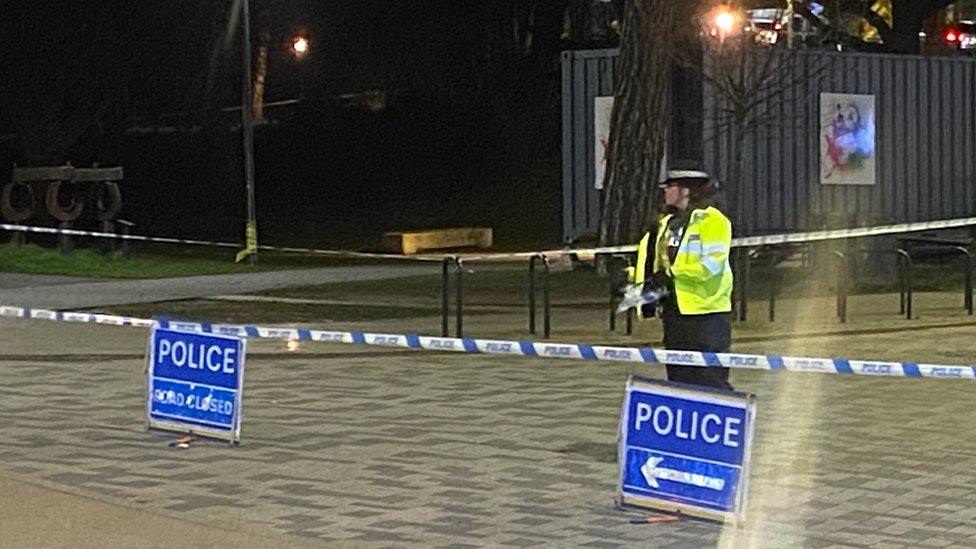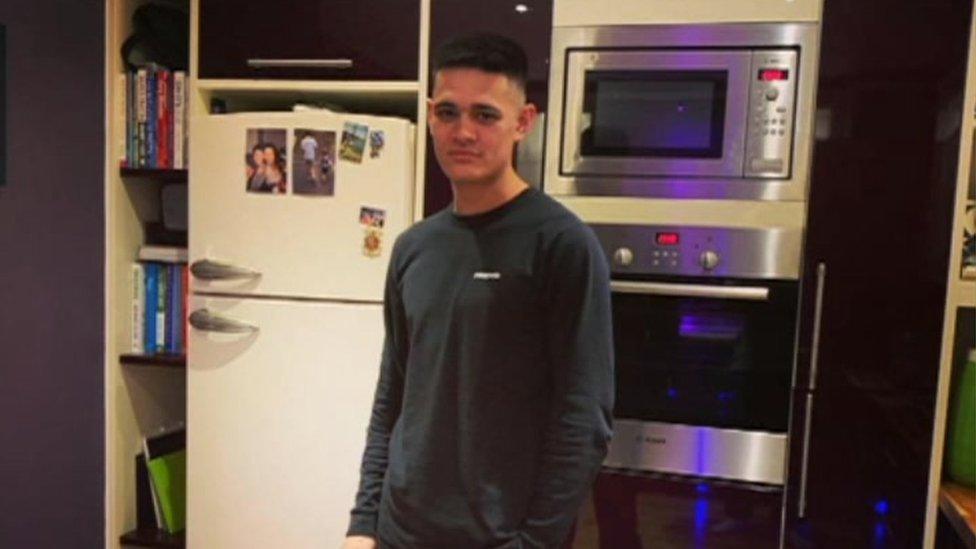Bournemouth murder accused was violent after blackouts, court hears
- Published

Lawangeen Abdulrahimzai admits manslaughter but denies murder
An Afghan asylum seeker who fatally stabbed a stranger said he experienced anxiety that led him to "black out and act violently", a jury has heard.
Lawangeen Abdulrahimzai has admitted the manslaughter of Tom Roberts, 21, in Bournemouth in March 2022, but denies a murder charge at Salisbury Crown Court.
He previously told a jury he thought his victim was an agent of the Taliban trying to kill him.
A psychiatrist diagnosed borderline personality disorder, the court heard.

Tom Roberts was fatally stabbed on a night out
Previously, a prosecutor said Mr Roberts, from Bournemouth, was killed when he tried to act as a "peacemaker" in a dispute over an e-scooter in Old Christchurch Road on 12 March.
He was immediately stabbed when he slapped and possibly also punched Mr Abdulrahimzai in the face, the court heard.
Previously the defendant, from Poole, said he fled Afghanistan after the Taliban killed his parents and left him for dead.

The defendant said he feared the Taliban were trying to kill him
He said the hardline group had "people everywhere" and he feared Mr Roberts was one of the "people who are trying to kill me".
The court heard Mr Abdulrahimzai was assessed in 2020 by social workers who recorded that he feared the Taliban were "after him" and "he sometimes doesn't know if he is in the past or present".
Giving evidence, consultant forensic psychiatrist Dr Gauruv Malhan said the defendant told him he had "sounds of gunshots and explosions echoing in my ears".

Police cordoned off part of Old Christchurch Road and Horseshoe Common
The psychiatrist added the defendant, who is thought to be 21, said: "I think my brain is not a right brain."
"He explained that when he experiences anxiety at times he can black out and act violently."
Dr Malhan said the defendant had a history consistent with borderline personality disorder but not post-traumatic stress disorder.
The trial continues.

Follow BBC South on Facebook, external, Twitter, external, or Instagram, external. Send your story ideas to south.newsonline@bbc.co.uk, external.
Related topics
- Published16 January 2023

- Published10 January 2023
